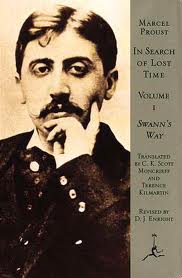
During most of the summer, I have spent my time reading about love and loss. I have delved into literary theory, theology, psychoanalysis, and literature. In a recent article – “Can We Read the Book of Love?” in PMLA – Richard Terdiman writes: “people love being in love, and when they are they talk and write about it with an expansive intensity.” I am struck by a persistent desire as readers to read about love. Romance novels continue to be the largest portion of book sales in the United States, and during a recession romance novels increase in sales. Indeed, “we love being in love.”
Roland Barthes in A Lover’s Discourse observes that “to try to write love is to confront the muck of language: that region where love is both too much and too little, excessive (by the limitless expansion of the ego, by emotive submersion) and impoverished (by the codes on which love diminishes and levels it).” Barthes and Terdiman seem to agree that love and to write about love is to be excessive: both too much and too little.
In his recent novel, A Familiar Rain, John Geddes explores the problem of love and loss: the problem being one where we strive to return, always, to a love lost. While reading A Familiar Rain, I was also reading and writing about Marcel Proust’s In Search of Lost Time; more specifically, I was writing about The Fugitive, a book that opens, “Mademoiselle Albertine is gone,” and narrates the loss of Albertine and Marcel’s reactions. In A Familiar Rain, we are presented with a protagonist who falls in love and loses his first love. Throughout the novel, he is researching memory and returning to our memories (at times the novel seems to recall H. G. Wells’ Tono-Bungay). Of course, the novel illustrates the problems of this search for lost time.
The problem with reliving memories, we learn, is that “all of the sorrows and the trauma we usually get over by forgetting, she can still recall. It could torment her. I’m not sure if this is a blessing or a curse.” And indeed, this is precisely the problem with remembering: intrinsic to a memory is not always a positive experience. Memory can force us to long for that which is now lost and yet persistently present because we cannot, we do not, forget. Nowhere is this more true than in the story of love, where “memory is burned into your consciousness.”
Continue reading →

